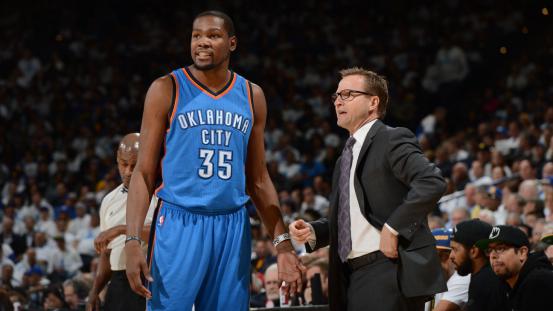- Commissioner’s statement on Ventura, Marte
- Ronnie O’Sullivan: Masters champion ‘felt so vulnerable’ in final
- Arron Fletcher Wins 2017 WSOP International Circuit Marrakech Main Event ($140,224)
- Smith challenges Warner to go big in India
- Moncada No. 1 on MLB Pipeline’s Top 10 2B Prospects list
- Braves land 2 on MLB Pipeline’s Top 10 2B Prospects list
- Kingery makes MLB Pipeline’s Top 10 2B Prospects list
- New Zealand wrap up 2-0 after Bangladesh implosion
- Mathews, Pradeep, Gunathilaka to return to Sri Lanka
- Elliott hopes for rain for Poli
Scott Brooks looks to put his stamp on the Wizards
- Updated: April 25, 2016

12:00 AM ET
Deciding whether a team has an “identity” calls to mind the classic U.S. Supreme Court definition of pornography: it’s hard to define exactly, but you know it when you see it — and in the case of NBA teams, you definitely know when you don’t.
It’s hard to even say whether you can craft an identity top-down — by plucking the right free agents and college kids — or if a team must happen upon one organically through some semi-random process of self-discovery. The Wizards of 2015-16 tried to manufacture an identity on short notice while saving cash for a plastic surgery job in July. They haphazardly crafted a pace-and-space team while winky-wink flirting with Thunder forward Kevin Durant, and after six injury-riddled months of aimless flailing on the court, they may end up with neither.
On Friday, Washington banked the next phase of its development on a coach seeking his own identity, even after guiding Oklahoma City within three games of a title way ahead of schedule. Ask the Wizards what they see in former Thunder coach Scott Brooks, and you’ll hear the usual: He’s a wonderful man, players will go to war for him, and he’ll coach up the young guys — just as he did with the once-youthful Thunder. He’s a warm, encouraging spirit, and that matters over the slog of 82 games. For better or worse, it will create a different vibe than recently departed Randy Wittman’s sometimes ornery perfectionism.
“The biggest thing for me is the relationships,” Brooks told me on a podcast in March. “I know I got that right.” His former players agree.
His connection to Durant is a nice coincidence that may also mean nothing. If Durant had made it plain he wanted to play for Brooks, current Oklahoma City coach Billy Donovan would still be at Florida.
All the Durant buzz now says he wants no part of going home, but be careful what you believe. Most of that chatter comes from people three, four and five steps removed from Durant’s tight-lipped inner circle at Roc Nation — gossipy types who dial up the NBA’s telephone game. The Lakers are in it, then out of it, then in it again — and don’t forget about the Warriors! I will say this: The Spurs buzz is ascendant in a way that is eerily similar to what happened last January at the D-League Showcase, when a half-dozen unconnected team executives warned me over the span of a few days that LaMarcus Aldridge would bolt from Portland for San Antonio. Who knows. At the very least, the Wizards will get a chance to make their pitch.
They’re also paying Brooks $35 million whether Durant comes or not. Washington needs Brooks to figure out what this team should really look like around point guard John Wall, a legit NBA superstar, and Brooks needs a second chance to establish what exactly he stands for as a coach. Being nice and working hard does not constitute an identity.
Brooks is now somewhere around the league’s second- or third-highest paid coach who doesn’t double as his team’s front-office hammer. That seems remarkable, given how much criticism Brooks absorbed over the years in Oklahoma City.
But his hiring is a reflection of the league’s current financial environment, and perhaps a rational one. Revenue is up, and players get only about half of it — down from their 57 percent share under the old collective bargaining deal. A rich, new TV deal is about to flood the league. Teams have extra cash to spend on areas uncapped by salary restraints: front-office executives, biometric technology and coaches. The smart teams will spend in smart ways. Coaching agents are also pushing the idea that their clients need to earn more to mark their authority as salaries for even middling players rise into the stratosphere.
Is Brooks worth it without Durant? He became a bit of a punching bag for refusing to downsize against the small-ball Heat in the 2012 Finals, relying on creaky veterans like Derek Fisher over bouncier dudes, and overseeing a stagnant offense that leaned upon one-on-one talent as a crutch. Flash forward to 2016, and the Thunder are barely playing Durant at power forward; giving precious minutes to Nick Collison and Randy Foye while Cameron Payne …
continue reading in source espn.go.com
